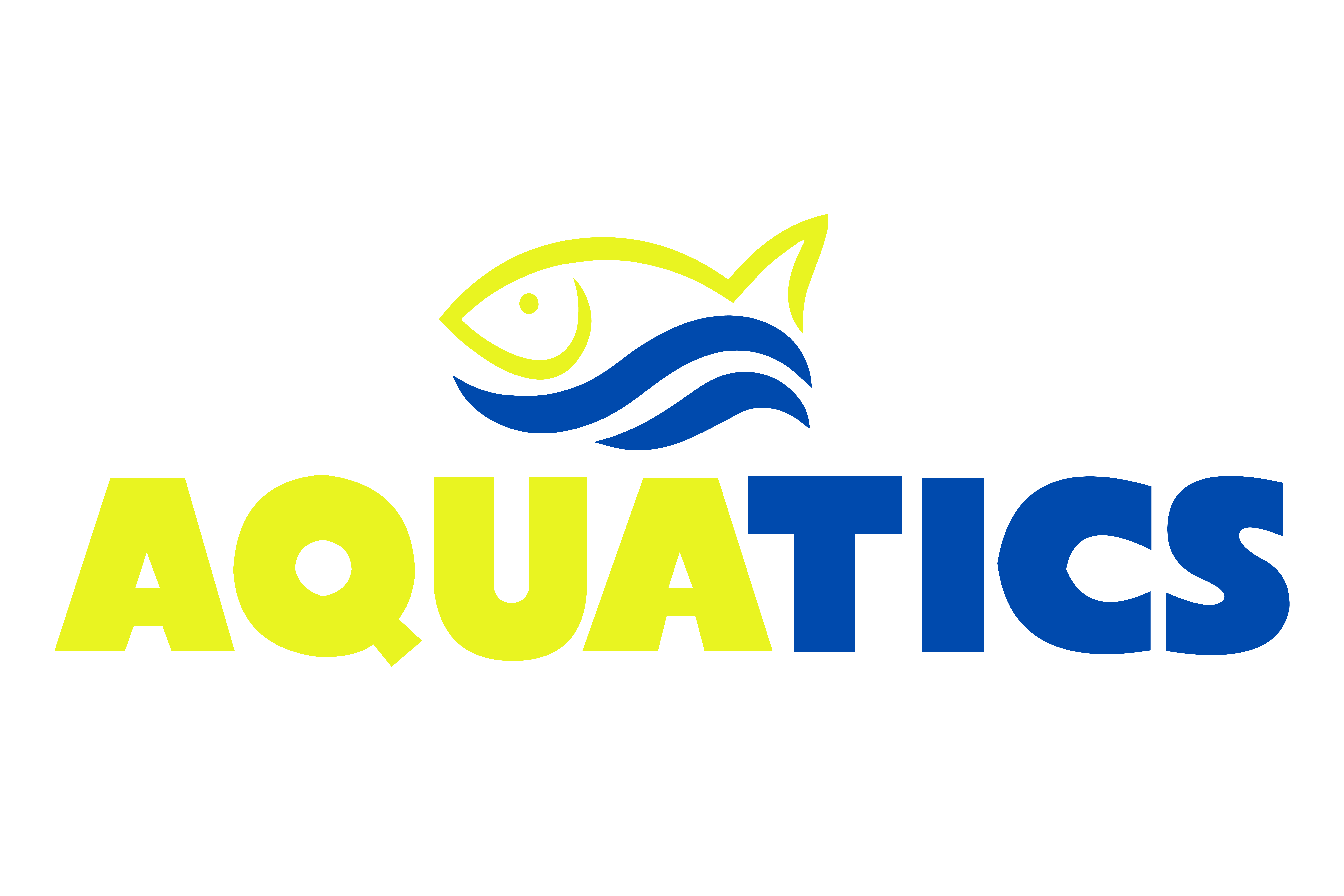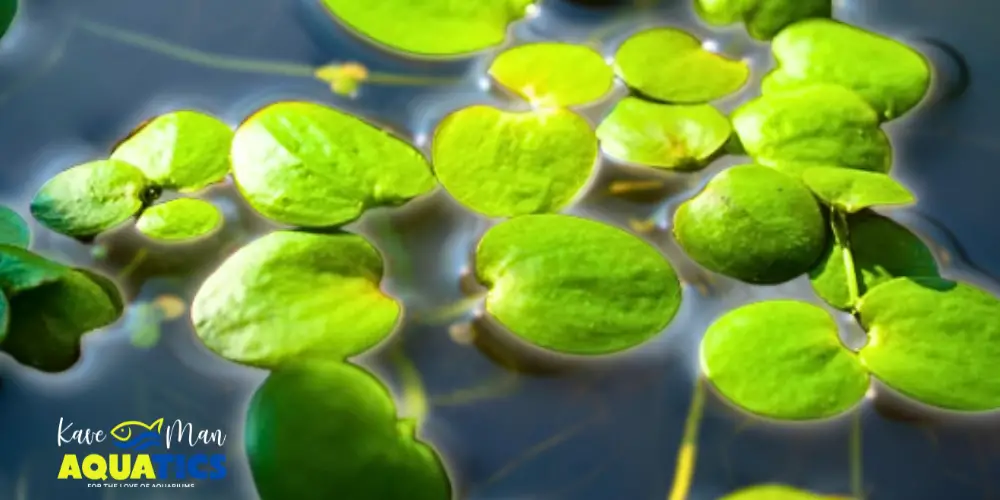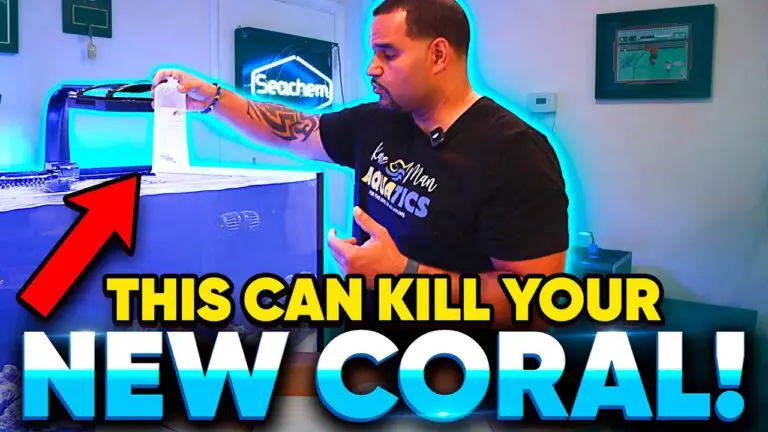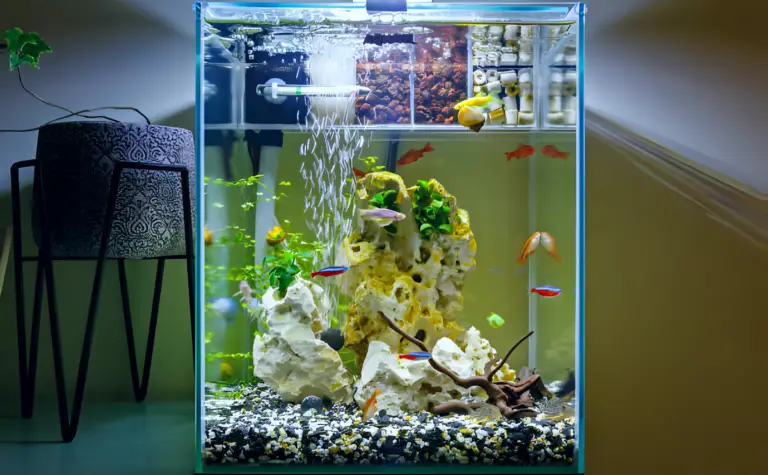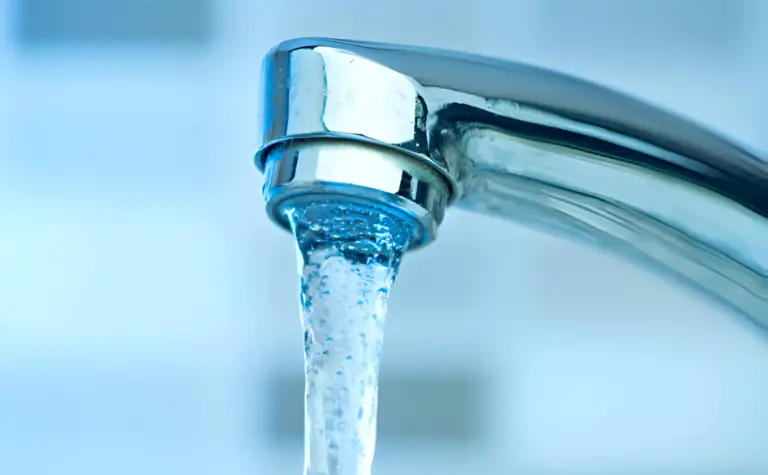Best Floating Aquarium Plants: Enhancing Your Tankʼs Aesthetic and Health
So, you’re diving into the world of floating plants for your aquarium — exciting, right? Floating plants might seem like just decoration, but they’re actually powerhouse additions to your tank. Not only do they look amazing, but they also help keep your water clean, provide shade, and create a cozy, natural habitat your fish will love.
If you’re not sure where to begin, don’t worry — we’ve got you. We’ll walk you through the best floating aquarium plants to enhance the look and health of your tank.
1. Anacharis (Egeria densa)
Anacharis is a versatile plant that can either float or be rooted. It’s fast-growing and great for soaking up extra nutrients. Plus, it provides excellent cover for fish. Just watch out — it’ll need regular pruning to keep it under control!
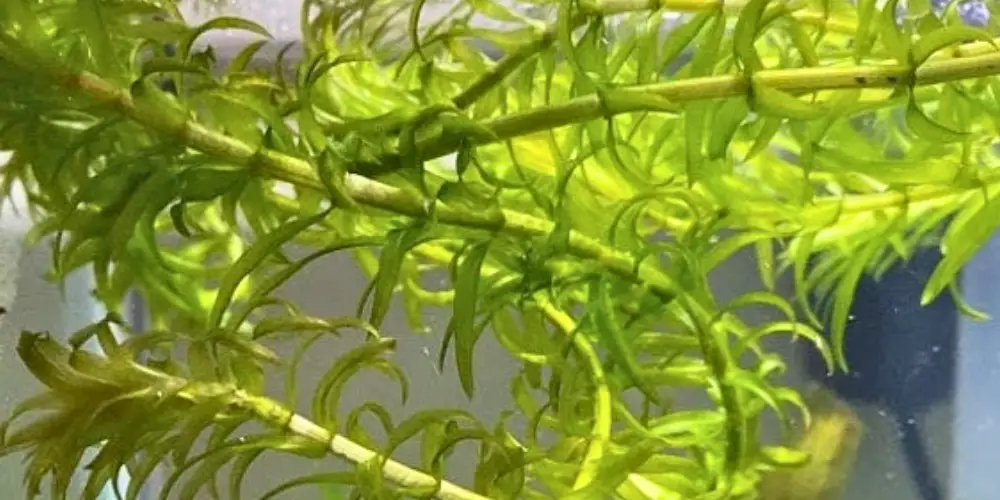
- Floating or rooted: Can be either, though it’s typically anchored
- Pros: Fast-growing, absorbs excess nutrients, provides cover for fish
- Cons: Needs regular pruning, can grow quickly and dominate the tank
- Care level: Easy
2. Duckweed (Lemna minor)
Duckweed is tiny but mighty! It floats on the surface and quickly multiplies. It’s perfect for reducing algae as they block light. However, be prepared to thin it often since it can cover the tank fast.
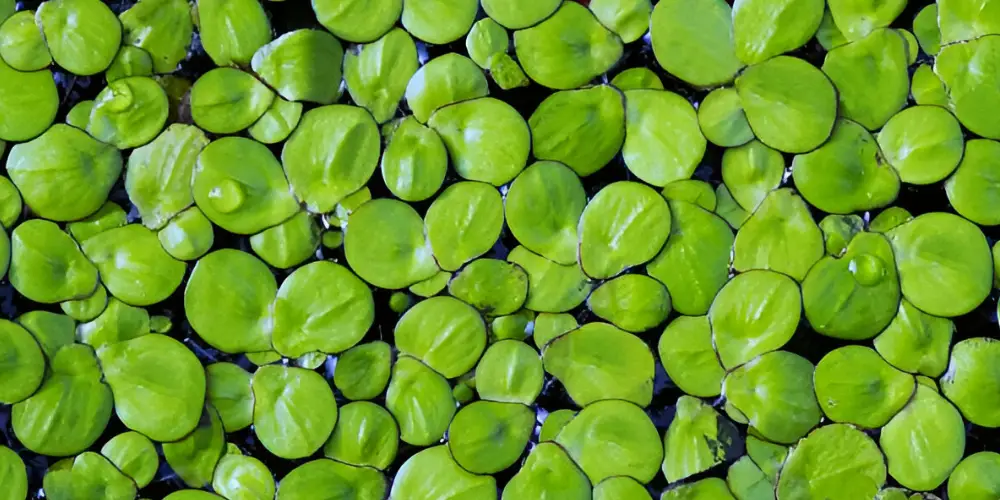
- Floating or rooted: Floating
- Pros: Great for nutrient absorption and algae control, provides cover for fish
- Cons: Extremely fast-growing, can cover the tank surface quickly
- Care level: Easy
3. Hornwort (Ceratophyllum demersum)
Hornwort is super hardy. It grows quickly, making it a fantastic oxygenator — and it’s a hit with fish looking for hiding spots. Just note that it occasionally sheds its needles, so you may need to clean up a bit.
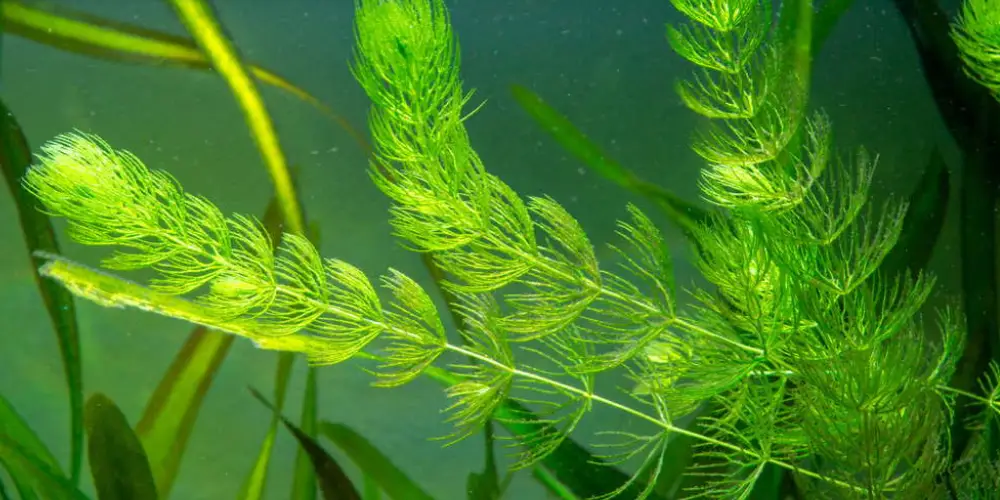
- Floating or rooted: Can float freely or be anchored
- Pros: Hardy, grows quickly, good oxygenator, offers shelter for fish
- Cons: Can shed needles, which may require cleanup
- Care level: Easy
4. Amazon Frogbit (Limnobium laevigatum)
Amazon Frogbit has lovely round leaves and long roots. It’s a good choice for providing shade and controlling nutrients. It does need some space and occasional trimming to keep it looking nice.
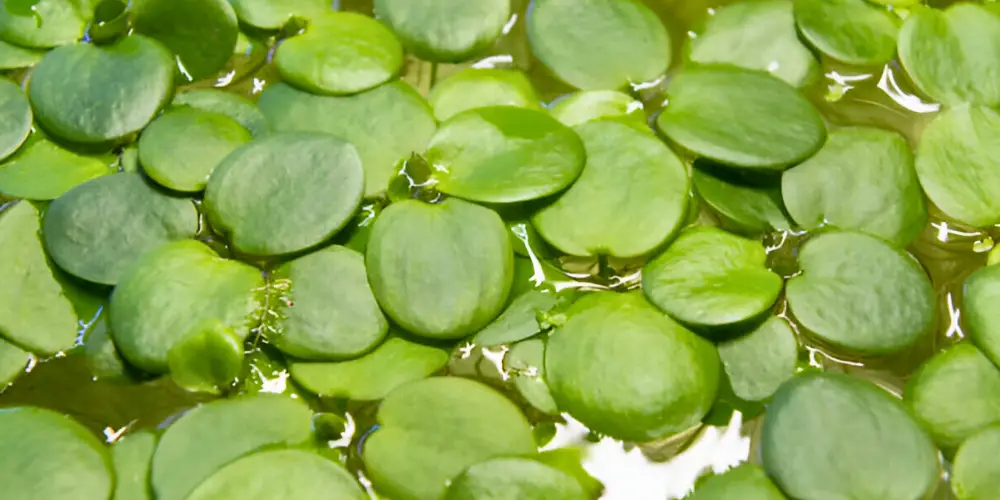
- Floating or rooted: Floating
- Pros: Attractive with large roots, provides shade and nutrient absorption
- Cons: Needs open surface space and occasional trimming
- Care level: Easy to Moderate
5. Water Lettuce (Pistia stratiotes)
This plant has fuzzy, rosette-shaped leaves and dangling roots that create a cozy shade for fish. It loves nutrients and helps with water quality, but it can overgrow quickly — especially under bright light.
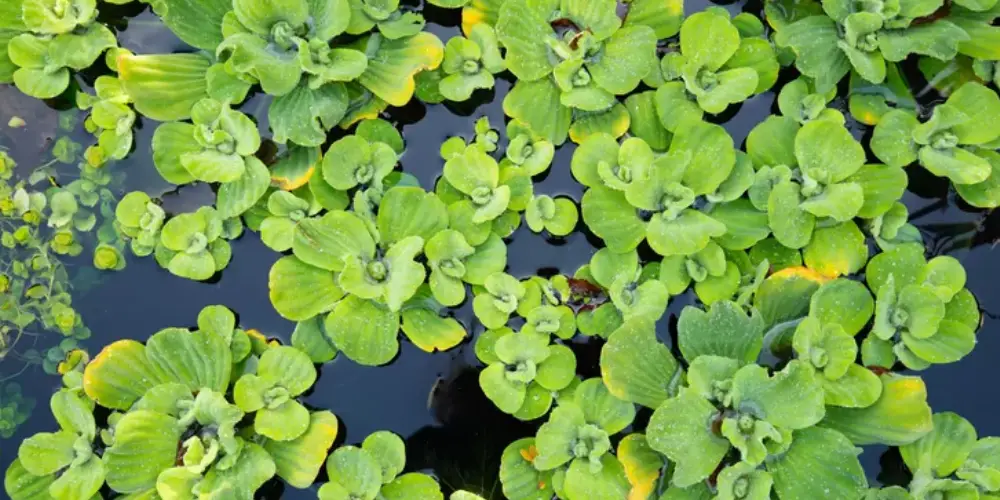
- Floating or rooted: Floating
- Pros: Adds visual interest, ideal for shading fish and shrimp, absorbs nutrients well
- Cons: Can overgrow, needs moderate to high lighting
- Care level: Moderate
6. Water Sprite (Ceratopteris thalicotoides)
Water Sprite is a favorite among hobbyists for its ability to provide shelter and absorb nutrients. It grows fast, so you might need to trim it now and then. It’s also known as water fern or Indian Fern.
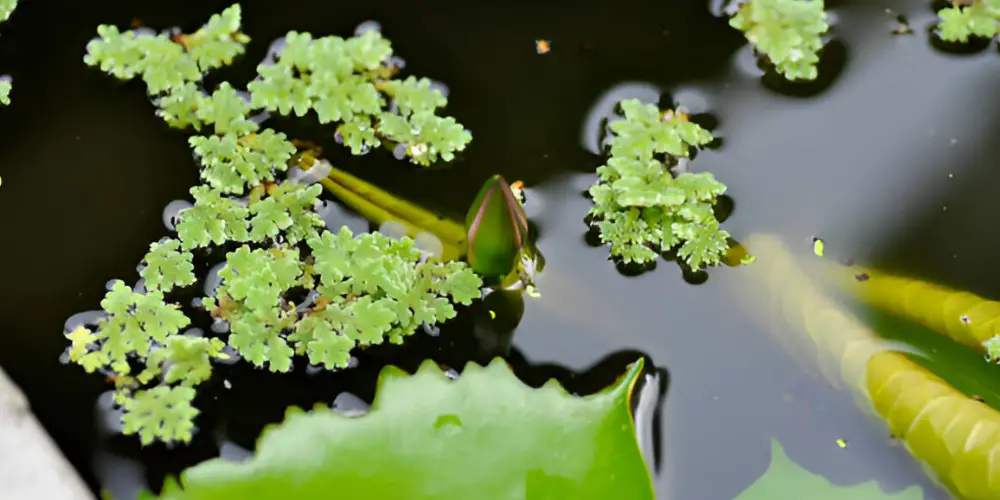
- Floating or rooted: Can float or be anchored in substrate
- Pros: Versatile, provides cover and absorbs nutrients well
- Cons: Grows quickly and may need pruning
- Care level: Easy
7. Water Spangles (Salvinia minima)
Water Spangles form dense mats of tiny oval leaves, offering lots of shade. They’re easy to care for but can spread rapidly — so keep an eye on them to avoid overcrowding.
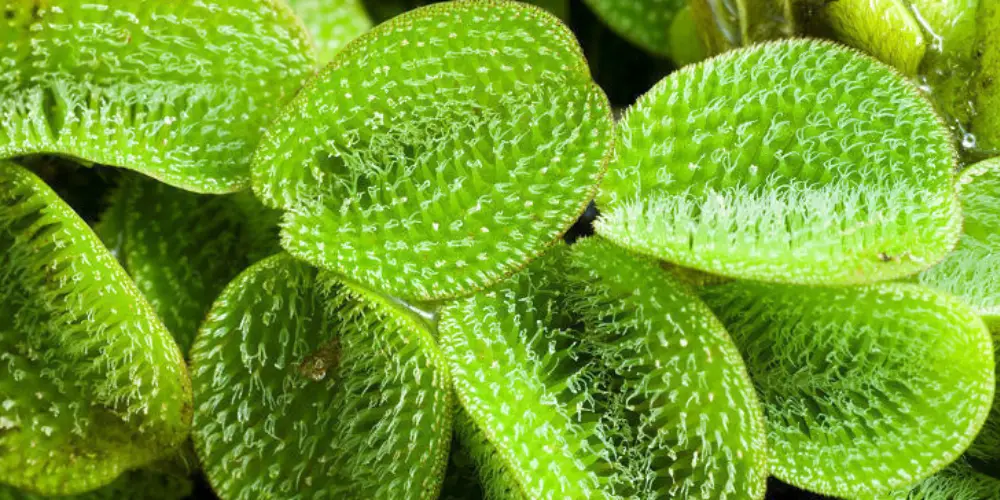
- Floating or rooted: Floating
- Pros: Dense, provides good shade, nutrient absorption
- Cons: Can be invasive if not controlled
- Care level: Easy
8. Mosquito Fern (Azolla filiculoides)
This plant is small but unique — often developing a red tint under bright light. It floats and grows quickly, so it can take over the surface if you’re not careful. Mosquito Fern is delicate but gives a nice pop of color.
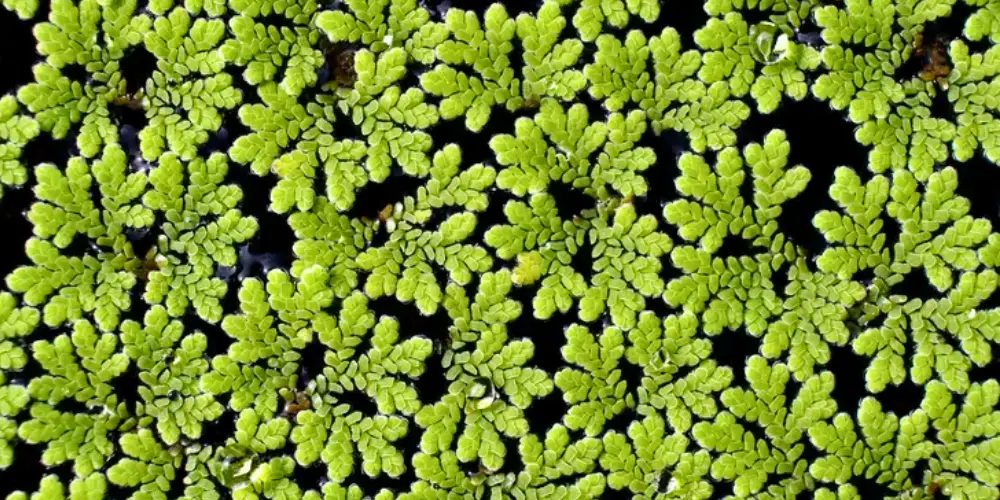
- Floating or rooted: Floating
- Pros: Small, offers a unique look with a red tint under high light
- Cons: Can cover the surface quickly; delicate
- Care level: Easy to Moderate
9. Ludwigia repens
Ludwigia repens usually grow rooted, but they can float if trimmed. It’s loved for its red-green hues, adding color to your setup. It needs decent lighting to stay vibrant and may benefit from a little fertilizer.
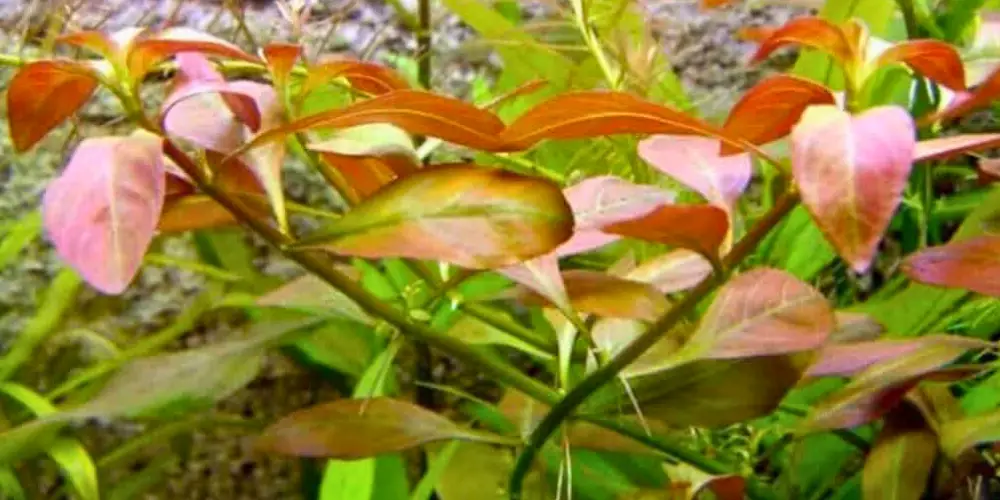
- Floating or rooted: Typically rooted but can float if trimmed
- Pros: Beautiful red-green coloration, helps control algae, adds visual depth
- Cons: Needs good lighting to maintain color, may require fertilizers
- Care level: Moderate
10. Red Root Floater (Phyllanthus Fluitans)
Known for its striking red roots, this floater brings a splash of color to the tank. It provides shade and absorbs nutrients but needs high light and steady conditions to thrive.
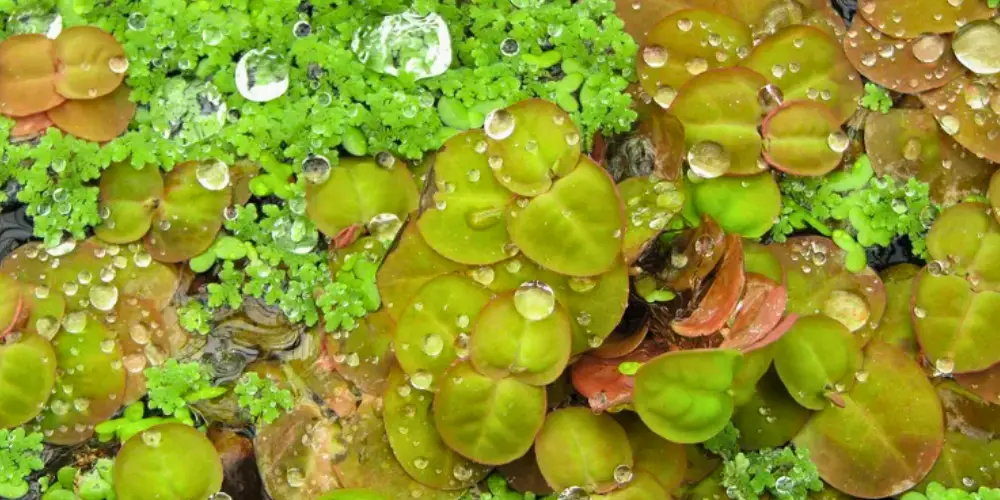
- Floating or rooted: Floating
- Pros: Adds color and aesthetic appeal with red roots, provides shade
- Cons: Requires high light and stable conditions to thrive
- Care level: Moderate
Build the Perfect Aquarium With Aquabuildr!
Now that you’ve got the scoop on some of the best floating aquarium plants for your aquarium, why not take your fishkeeping game to the next level? Enter Aquabuildr — the ultimate app designed to help you build, customize, and maintain a thriving aquarium with ease.
With features like custom tank-building, intelligent alerts for compatibility, and even monitoring tips, it’s the all-in-one tool every fishkeeper needs. Say goodbye to guesswork and hello to an aquarium that thrives!
Get started for FREE on the App Store or Google Play store, and start building your dream aquarium!
Best Floating Aquarium Plants: Enhancing Your Tankʼs Aesthetic and Health
Looking to enhance your aquarium? Explore the best floating aquarium plants to beautify your tank and keep your fish happy!
